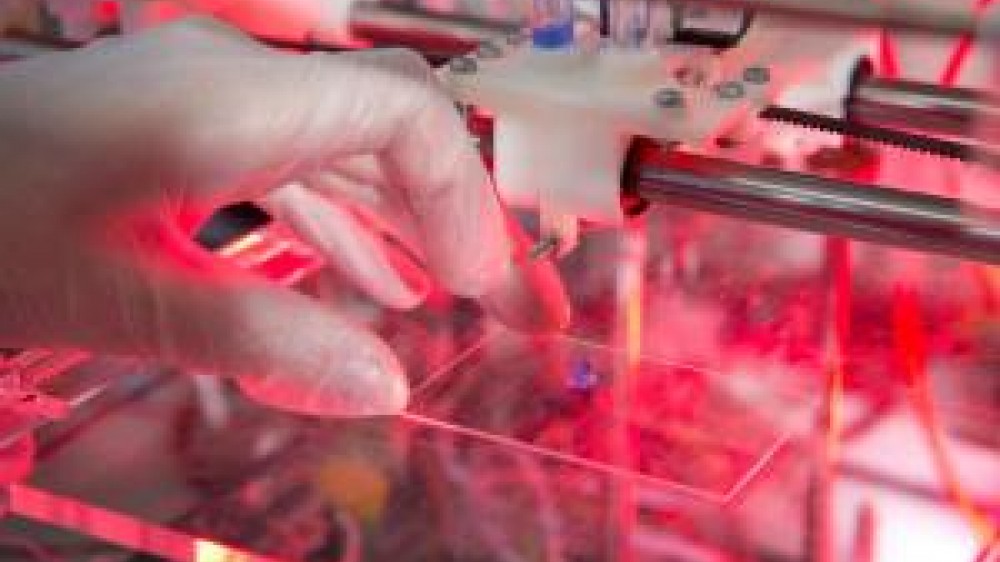NATs-funded project claims breakthrough in bioprinting cells

A project funded through the NC3Rs/Innovate UK Non-Animal Technologies (NATs) programme has claimed a breakthrough by creating a 3D printer capable of working with delicate induced pluripotent stem (iPS) cells.
The research paper, which has been published in the IOP journal Biofabrication, found that stem cells which are derived from a donor’s own adult cells can be printed without adversely affecting the biological functions of the cell. Whilst the original research focused on the generation of 3D miniature livers, the potential of stem cells to grow into almost any type of cell within the body means that the development of different types of 3D human tissues through bioprinting is now possible.
The research which was led by Dr Will Shu and his team at Heriot-Watt University in collaboration with Roslin Cellab, means that the technology can be used for pharmaceutical testing and in the process will reduce the number of animals used in drug development. it is hoped that in the future, this breakthrough will lead to helping patients receive specialised drugs which are most effective for their needs.
Dr Shu commented: "This study is the first to demonstrate that human induced pluripotent stem cells, that is stem cells derived from the adult patient’s own cells, can be bioprinted without adversely affecting their biological functions; our 3D printing process is gentle enough to do this."
"The ability to bioprint stem cells while either maintaining their pluripotency, their ability to develop into all types of cells in the body, or indeed directing their differentiation into specific cell types, will pave the way for producing organoids, or tissues on demand, from patient specific cells. These could then be used for animal-free drug development and personalised medicine."
The project received a grant of over £200k in the first-round of NATs feasibility funding in 2014 to explore how non-animal technologies can be further developed and applied to improve product development across a range of industries. The NATs programme is a joint venture from NC3Rs and Innovate UK, which was established to connect the research and business communities in the development and application of novel technologies that have the potential to transform business and improve product development, and reduce reliance on animal models.
The research has been publicised in media outlets across the world, including on the BBC website.
